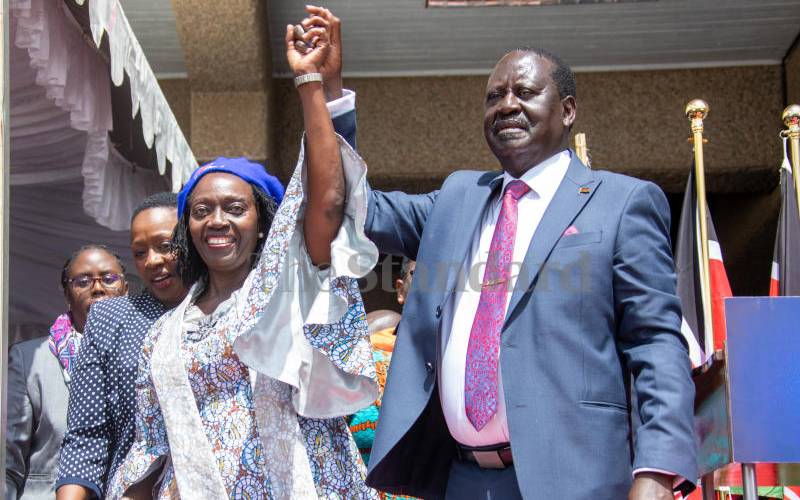
Today marks what might turn out to be an epochal moment for one of the foremost mercurial players in Kenya’s politics over the past four decades. Raila Odinga has rocked the cradle of Kenya’s civic activities like nobody else, leading him seasonally in and out of government, depending on the fortunes and vicissitudes. His political choices and activities have seen him in and out of detention, exile and government. Today, as he submits himself to the Independent Electoral and Boundaries Commission (IEBC) for certification for the August 9 presidential election, he arrives in the ambiguous incarnation of the opposition leader who enjoys the support of retiring president, Uhuru Kenyatta, and as a co-president of sorts.
He also arrives before the Wafula Chebukati-led commission with a starry galaxy of backers, including some who have been among his most ardent critics and political adversaries, significantly epitomised in his running mate, Martha Karua. Raila has previously blamed Karua as the mastermind of the bungled election of 2007, which he claims was stolen from him. He has no kind words for her in his autobiography, The Flame of Freedom. That she is today his running mate is a tale of how times and tides have shifted the Kenyan political arena ahead of this year’s poll. Raila’s Azimio la Umoja-One Kenya Alliance is at once a team of rivals and a rival team. It has been a long walk to this platform, and especially so for the man of the moment, Raila Amolo Odinga.